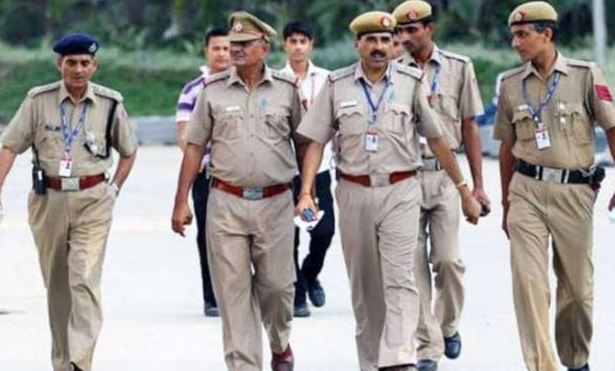
Commissionerates in UP may redefine IAS, IPS power equation in state
The Uttar Pradesh cabinet’s nod for the constitution of a Commissionerate system of policing for Lucknow and Noida today, is likely to end the long battle for supremacy between the Indian Police Service (IPS) and the Indian Administrative Service (IAS) groups.

The Uttar Pradesh cabinet’s nod for the constitution of a Commissionerate system of policing for Lucknow and Noida today, is likely to end the long battle for supremacy between the Indian Police Service (IPS) and the Indian Administrative Service (IAS) groups in the state.
Senior officials of the state told The Federal that the pilot project, to be started in Lucknow and Noida, could soon be considered for the whole of the state. Both Noida and Lucknow, have been without a senior Superintendent of Police (SSP) for the past few days following the suspension of Noida SSP Vaibhav Krishna and transfer of SSP Lucknow to Ghaziabad.
Following the decision of the state government, Sujit Pandey and Alok Singh have been appointed Police Commissioners of Lucknow and Noida, respectively.
Under the Commissionerate system, the district would be headed by an official of the rank of Additional Director General of Police (IGP) who will report straight to the Director general of Police (DGP), who in turn will take orders from the Home Secretary.
Moreover, under this system, the Commissioner of Police would have magisterial powers in his hands, whereas the SSP has to report to the District Magistrate. This would enhance the powers of the top cop of the state as he would not require the permission of the District Magistrate in case of transfer of junior cops or opening fire at rioting mobs.
District Magistrate Vs SSP
The last tiff between a District Magistrate and an SSP was reported from Ghaziabad some time back when the then DM of Ghaziabad Ritu Maheshwari, now Chief Executive Officer of Noida, objected to the transfers of junior cops by the then SSP Ghaziabad Vaibhav Krishna (now under suspension). The matter escalated to the top hierarchy of the officials in the state and the SSP had to backtrack and send the transfer list to the District Magistrate for approval.
Also read: Image of UP police takes huge hit as senior cops wash dirty linen in public
With the introduction of Commissionerate system in Uttar Pradesh, the Police Commissioner would now have greater powers or rather all powers related to policing and would not have to seek any permission from the District Magistrate. This would mean a devaluation in the powers of the District Magistrate who is an officer of the Indian Administrative Service. Under the new system, the powers of District Magistrate would be curtailed to a great extent and the officer would be confined to tax collection, protocol duty and matters of lesser importance in the district.
Fulfillment of longstanding demand
The IPS lobby of the state has been demanding a Commissionerate system of policing for years now. Former Director General of Police of the state, Prakash Singh, who held this post from July 22, 1991 to September 30, 1992, had strongly advocated this system for giving more powers to the police for better and effective policing. He had also sent a detailed report to the state government,which only gathered dust.
Another DGP, Sulkhan Singh had also batted for a Commissionerate system of policing in the state in 2017 but no action was taken on his advice.
Before this, in 1977, when Ram Naresh Yadav was the Chief Minister of Uttar Pradesh, an IPS officer named Vasudev Panjwani had been named the first police commissioner of Kanpur but he was recalled even before he could take charge.
This move would for sure reduce the powers divested with the officers of the Indian Administrative Service (IAS) and would give a certain strong upper hand to the officers of the Indian Police Service of Uttar Pradesh.


